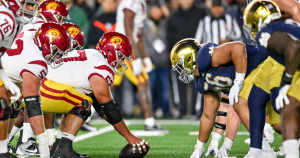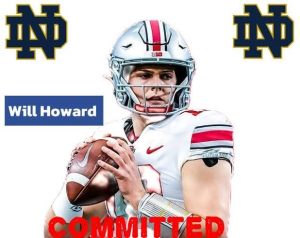
Jared Curtis said NIL deal wasn’t top factor in picking Georgia football. Why that makes sense
In the evolving landscape of college football recruiting, the significance of Name, Image, and Likeness (NIL) deals has become a focal point. However, for some prospects, traditional factors such as coaching stability, playing time opportunities, and program culture remain paramount. Jared Curtis, a five-star quarterback from Nashville Christian School in Tennessee, exemplifies this perspective. Despite securing an NIL deal shortly after his commitment to the University of Georgia, Curtis emphasized that NIL was not the primary factor in his decision-making process.
The introduction of NIL rights has transformed the recruiting process, offering athletes the opportunity to profit from their personal brand while still in high school. This shift has led to an influx of endorsements and partnerships for top-tier recruits. For instance, Curtis signed an NIL deal with Leaf Trading Cards, marking a significant milestone in his recruitment journey .
While such deals can be lucrative, they also add complexity to the decision-making process. The allure of immediate financial gain might overshadow more traditional considerations, leading some to question whether NIL is becoming the dominant factor in recruitment decisions.
Despite the growing prominence of NIL, Curtis’s commitment to Georgia was influenced by factors beyond financial incentives. His decision was rooted in the program’s history of developing quarterbacks, the coaching staff’s track record, and the university’s overall environment. Curtis expressed admiration for Georgia’s consistent success and its ability to surround quarterbacks with elite talent, making it an attractive destination for aspiring signal-callers .
Additionally, Curtis appreciated the family-like atmosphere fostered by the coaching staff, which played a significant role in his decision. The comfort level and personal connections established during his visits to Athens were pivotal in his commitment.
While Curtis did sign an NIL deal with Leaf Trading Cards, he made it clear that financial considerations were secondary to his long-term aspirations. The deal provided exposure and recognition but did not sway his commitment to Georgia. Curtis’s focus remained on his development as a quarterback and his fit within Georgia’s program, rather than immediate financial gain.
This perspective aligns with the views of many recruits who prioritize their athletic and academic futures over short-term financial benefits. For Curtis, the opportunity to develop under a reputable coaching staff and compete at the highest level of college football outweighed the allure of NIL deals.
Curtis’s decision underscores the importance of program fit in the recruiting process. While NIL deals offer financial opportunities, they do not guarantee success or personal growth. Curtis recognized that aligning with a program that matched his values, playing style, and career goals was more crucial than any financial incentive.
This approach reflects a broader trend among recruits who are increasingly discerning about their choices, seeking environments that will foster their development both on and off the field.
Jared Curtis’s recruitment journey highlights the complexities of modern college football recruiting. While NIL deals have introduced new dynamics, they are not the sole determinants of a recruit’s decision. Factors such as coaching stability, program culture, and personal fit continue to play significant roles. Curtis’s emphasis on these traditional considerations serves as a reminder that, despite the financial opportunities presented by NIL, the core values of college athletics remain centered on personal development and long-term success.





